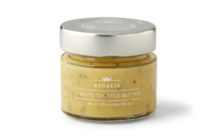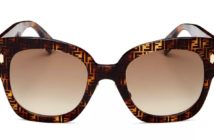
Energy drinks have been popular for years, and the market keeps expanding. Some people drink them like they would soda — during breakfast, lunch, dinner and as snacks. But there is such a thing as too much energy. A study published today in the journal Drug and Alcohol Dependence delivers a stern warning about the possibility of caffeine intoxication from energy drinks.
“The caffeine content of energy drinks varies over a 10-fold range, with some containing the equivalent of 14 cans of Coca-Cola, yet the caffeine amounts are unlabeled and few include warnings about potential health risks of caffeine intoxication,” said one of the study’s authors, Roland Griffiths of Johns Hopkins Medical Institutions.
A regular 12-ounce cola drink has about 35 milligrams of caffeine. A 6-ounce cup of brewed coffee has 80 to 150 milligrams of caffeine. The Food and Drug Administration imposes limits on how much caffeine food products can contain (71 milligrams for each 12-ounce can). But energy drinks are designated as dietary supplements, not food products. Thus, manufacturers of energy drinks can load their products with caffeine. Moreover, says Chad Reissig, another of the study’s authors: “It’s notable that over-the-counter caffeine-containing products require warning labels, yet energy drinks do not.”
Caffeine intoxication is a recognized clinical syndrome. It is described as nervousness, anxiety, restlessness, insomnia, gastrointestinal upset, tremors, rapid heartbeat, restlessness and pacing. In rare cases, caffeine intoxication can cause death. See this Mayo Clinic report on caffeine side effects and this L.A. Times story on energy drinks that was written by a doctor.
The authors of the study have called for labeling on energy drinks to inform consumers of what they are getting. Advertising for energy drinks is aimed at teens and young adults and promotes the drinks as performance enhancers. Recently, however, some manufacturers have applied a harder edge to their marketing. One product is named Cocaine, and another product, a powdered energy drink sold in a vial, is named Blow. The makers of both products have received warning letters from the FDA about misleading advertising.
But occasional hand-slaps from the FDA are not enough. Besides caffeine intoxication, the use of energy drinks along with alcohol can be dangerous, the Johns Hopkins researchers say. A recent survey found that 27% of college students said they had mixed energy drinks and alcohol at least once a month. There is even some evidence, says Griffiths, that energy drinks may serve as a “gateway” product leading to more serious drug abuse.




1 Comment
Really enjoyed reading that, you made some really good points